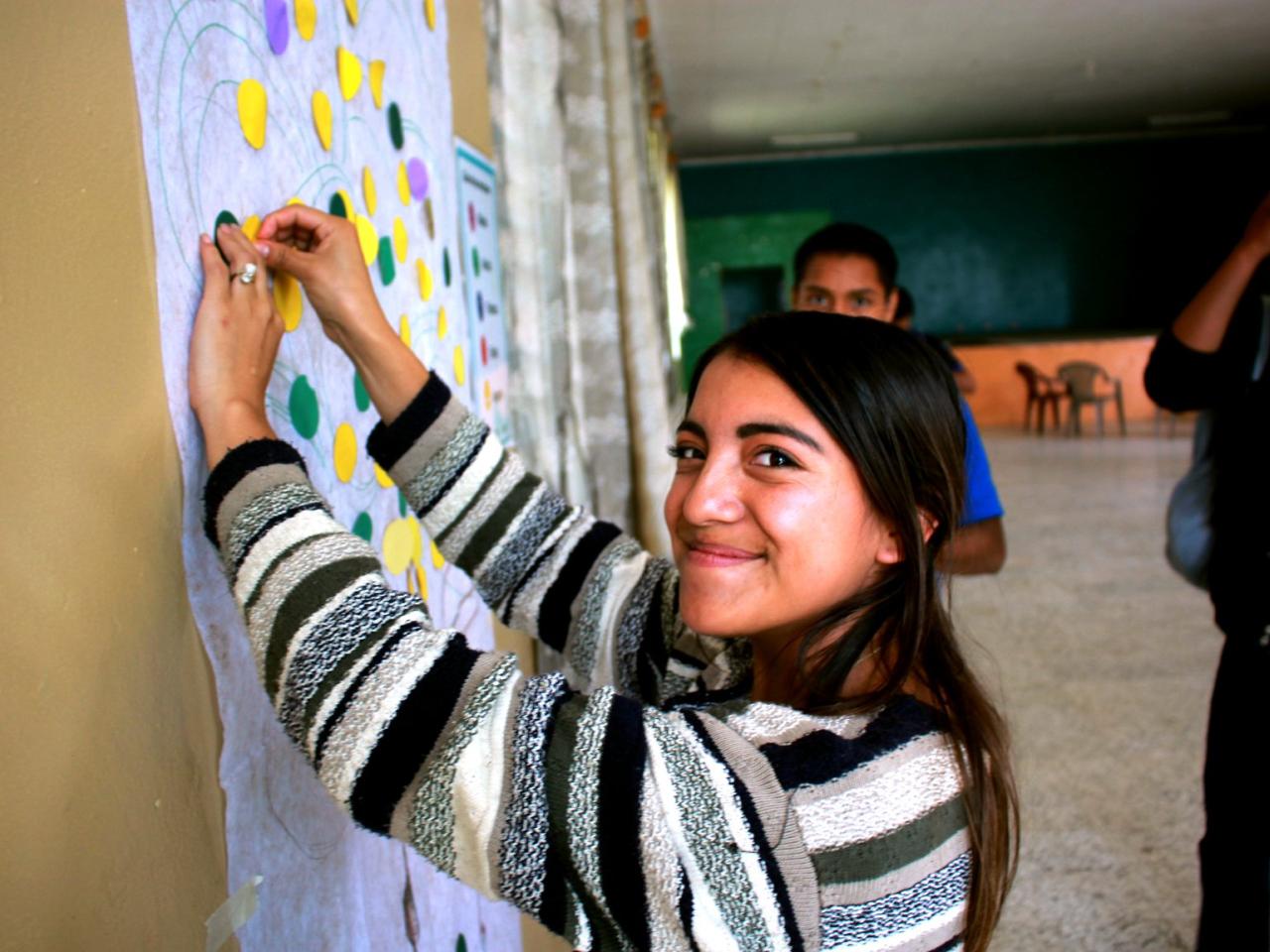Confronting rape and harassment through poetry
Angel Kabera uses spoken word performances to discuss sexual and gender-based violence, subjects that are considered taboo in her community.
KAMPALA, Uganda — “The anxiety a young woman feels walking past a ‘boda boda stage’, that’s where rape begins,” says 17-year-old Angel Kabera. Angel performed her award-winning poem about a girl gripped by fear while passing men at a boda boda stage (motorcycle taxi stand) at the High School Rule of Law Clubs Symposium, a Spotlight-funded programme implemented by Uganda Law Society that helps young people to understand their legal rights.
Angel goes to Gayaza High School in Kampala, one of 12 schools to take part in the symposium. Her favourite subject is literature, though ‘student’ is only one part of her identity. She is also a spoken word artist who is widely recognised for her powerful pieces on sexual harassment.
"We need to go back to our value system… We must work with boys and girls from young ages.” - Angel, 17
Despite the fact that 50 per cent of women in Uganda experience physical or sexual intimate partner violence during their lifetime, the issue is rarely discussed. Angel hopes to address subjects that many people in her community struggle to talk about through her art. “There are a lot of unsaid things in our society,” says Angel. “Parents don’t want to talk to kids about sexuality – children find out about these things on the internet.”
Here, she shares her thoughts on sexual harassment, gender-based violence and how young people can work towards ending these issues.
How would you define sexual harassment?
Sexual harassment is a form of abuse against one’s sexuality, not always physical. There is rape and defilement but there is also victimization through catcalling. This is all harassment.
How widespread is sexual harassment in schools?
My school is trying to empower girls but there are remote areas where education is less widespread. It is in these areas that sexual harassment is a harmful cultural norm. If someone isn’t empowered with the knowledge to know that [sexual harassment] is wrong, they perpetuate this harmful practice.
What role do boys and men play in ending sexual harassment?
In my opinion, boys and men should play a big part in ending sexual harassment in schools. If we create an alliance against boys and men, we don’t solve the problem. It would be good to see men supporting gender equality and ending violence against women through simply being respectful to women and treating them as equals... Issues around girls dressing indecently are heavily discussed [in Uganda] but people are defiled and sexually harassed wearing hijabs. You can wear a blanket and be sexually harassed. We need to go back to our value system… We must work with boys and girls from young ages, ensuring young boys and men rethink the notion of masculinity.
"Art brings to attention many things that we don’t want to talk about" - Angel, 17
Can you tell us how you address these issues in your poetry?
My poem ‘Boda Boda Stage’ deals with the roots of rape. The poem uses the imagery of a young woman walking past a boda boda stage, going home. This poem outlines that feeling of fear a young woman experiences when she encounters catcalls. This is where rape begins. Why must women feel uncomfortable in the presence of fellow human beings? As women we are groomed to be afraid, and this must stop.
Do you believe drama, music and the arts can help address sexual harassment?
Music, drama and the arts raise awareness. Art brings to attention many things that we don’t want to talk about. We don’t talk about rape in everyday conversation. Packaging this message in an entertaining way ensures that it goes straight to the people [who need to hear it] and sends a strong message. Through art, it becomes more than a lecture about rape. We package the message in a creative way so that it is appropriate for the audience.
Angel Kabera performs her poem 'Boda Boda Stage' at the 4th Annual Teen Poetry Slam.
By Eva Noma Sibanda

